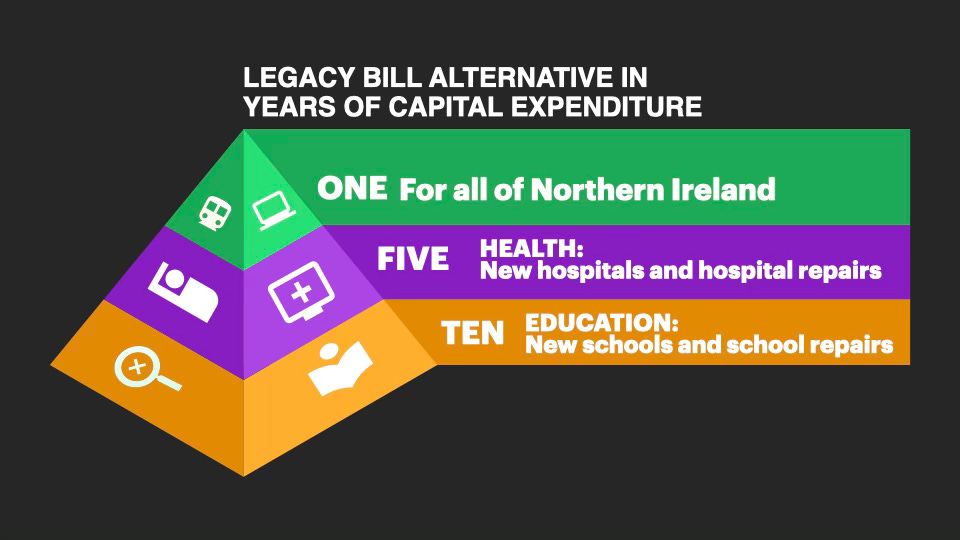Why is Legacy Spending in Northern Ireland Exempt from Scrutiny?
The UK Government run by lawyers plans to spend big on compensating criminals, rather than health and education funding.
Every penny of government spending is supposed to be ruthlessly focused on delivering core services, funding manifesto pledges, or responding to national priorities. But while departments face relentless Treasury scrutiny, one area appears to get a free pass: legacy costs in Northern Ireland.
A recent Policy Exchange report highlights the government plans to commit huge sums to so-called “legacy” issues, yet there’s little transparency or evidence that this spending is bringing peace and reconciliation. Instead, a legalistic, maximalist approach seems to be driving decisions—regardless of cost or consequence.
The Government pkans to shell out £2.3 billion of taxpayer money on Northern Ireland legacy issues realted to the Troublesm, of which £1.3bn to be incurred if the Remedial Order to the Legacy Act 2022 proceeds.
“These estimates are conservative. Depending on what decisions are taken by the Government, future costs could be significantly greater,” says the Policy Exchange.
This comes at a time when funding is being slashed elsewhere and more ordinary people are suffering. The government saved just £8.5 million by cutting support for advanced maths education, yet legacy spending continues unchecked. Scrapping Winter Fuel Payments for millions of pensioners was mean to savie of £1.4 billion.
In terms of NI alone, the cost in capital expenditure is equivalent to:
One year for all of NI
Five years for health (new hospitals and hospital repairs),
10 years for education (new schools and school repairs).
Meanwhile, penny-pinching in other areas has already cost the UK a £450m vaccine plant investment from AstraZeneca.
If these legacy payouts were truly helping Northern Ireland move forward, people would accept the cost. But with no clear benefits, why should taxpayers be forced to bankroll yet another open-ended commitment?
Worse still, the government could actively decide to allow Gerry Adams and others detained in the 1970s to claim compensation, with all the consequences that would bring.
The only real winners will be lawyers.
This isn’t about rewriting history—it’s about making informed choices. If ministers want to keep spending in this area, they should do so with full transparency and an understanding of the trade-offs. Anything less is a betrayal of taxpayers and those who expect fairness in how public money is spent.
At some point it became more important to recompense convicted criminals than educate the young or attend to the population’s health.
Which would you choose?


